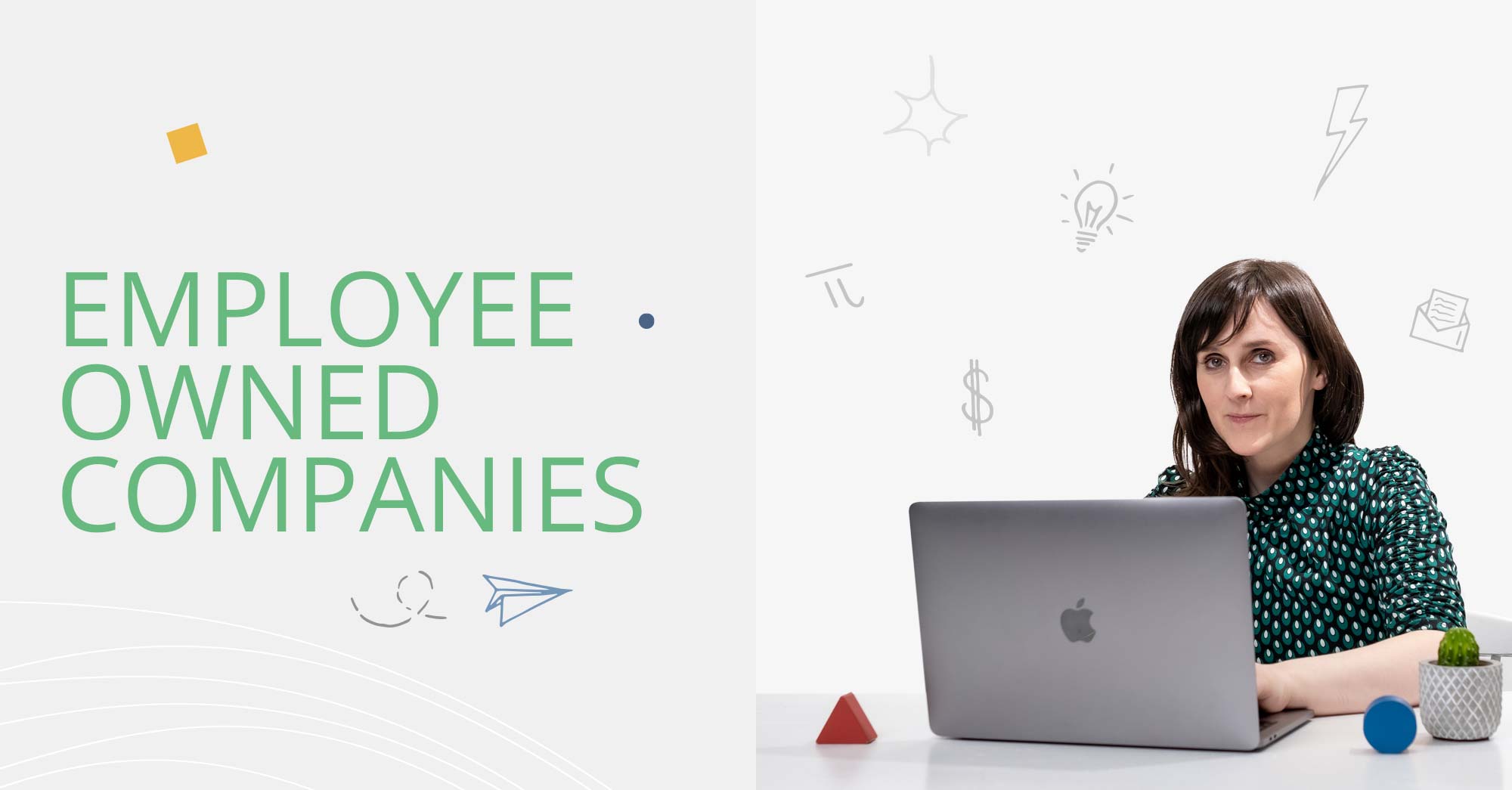As the world grows and companies expand to reach across borders, the world’s economy is changing. Many companies have grown larger and larger, and there has been a corresponding growth in the wealth gap. Not only that, but these companies can be more sensitive to an economic downturn, and the failure of one company can mean the failure of a large part of a whole industry.
We’re not going to pretend we know all the answers to this incredibly complex question, but we do have one answer. And it’s a good one. With one solution, we have an effective, proven way to reduce the wealth gap, and to make companies that use this solution more resilient during economic downturns.
It’s called employee ownership.
What is employee ownership?
What it means, basically, is that employees have the opportunity to own shares in their company – through share plans or other equity compensation schemes.
This gives them rights as shareholders, and it also gives them a chance to earn more money on top of their basic salaries. And the best part of all – it ensures they’re more invested in the company, more aligned with the company’s goals, and will work harder in order to reap returns.
There are two reasons for that.
First: they’re financially invested in the company’s financial future. The better the company performs, the more the shares are worth, and the better their investment becomes. They’re not just working for a paycheck; they’re looking for ways to drive the company forward. Second: most share plans spread out the issuance of shares over a period of time. So, the employee has an incentive to remain with the company for longer – the longer they stay, the more shares they receive.
Mix those two incentives together – a reason to stay longer, and a reason to work harder the whole time – and you can see why they give companies such a great advantage.
What’s the future of employee ownership?
According to a 2018 Harvard Business Review (HBR) article, about 17 million people in the U.S. workforce (12% of the total) are employed at variations of employee-owned businesses.
But that article notes a more interesting number: 2.3 million. That’s the number of companies whose owners are nearing retirement age. This means that very soon, their nearly 25 million employees could have a great opportunity. What if all of these owners transformed the futures of their companies, and their employees, by transitioning to employee ownership? Or, what if European companies did the same?
European companies have long dragged behind their American counterparts in terms of offering employee ownership. However, recent developments across the continent have seen a lot of countries loosening the restrictions on share ownership. In Ireland, the latest Budget 2020 ensured that more companies and Irish workers would be able to take advantage of the many benefits of employee ownership.
The biggest impact might come from the current global pandemic. Of course, it is impossible to tell how the world will be affected, and how it will recover. But it is hard to see how employee ownership won’t be a major part of the recovery.
Employee ownership will allow companies to offer tax- and cash-efficient ways to compensate their employees. It will also allow owners to ensure their companies are able to withstand any further economic downturn. But there’s something else – it will tap into the new global shift in thinking.
Even before this pandemic, the HBR article noted that many owners were interested in employee ownership, for two reasons. First was ‘ensuring the economic viability of local communities.’ When a company is employee-owned, it more directly benefits the community it exists in, as the employees are far more likely to live in the surrounding locale than the owners. And second, there was a lot more financing available for making the switch, as funds can see the benefits.
As the article states, ‘The social impact funds want to support it for social reasons, whereas hedge funds and others are recognizing that the superior resiliency and performance of worker-owned firms can improve their returns.’
Both of these will still be the case after the current situation passes. And they might even be more so. What we have seen so far is a more connected, more socially conscious, more locally-supportive world. And employee ownership can make that happen, and more.
Contact us for a demo
If you want to learn more about how employee ownership can transform your company’s future, contact Global Shares for a commitment-free demo. We have 14 years of experience in bringing out the best in companies.
This publication contains general information only and J.P. Morgan Workplace Solutions is not, through this article, issuing any advice, be it legal, financial, tax-related, business-related, professional or other. J.P. Morgan Workplace Solutions’ Insights is not a substitute for professional advice and should not be used as such. J.P. Morgan Workplace Solutions does not assume any liability for reliance on the information provided herein.


